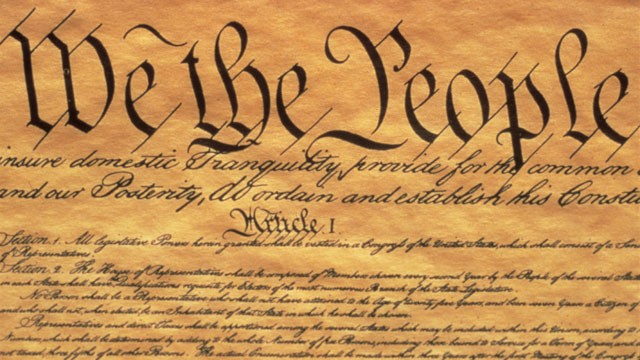The federal governments of many countries ─ definitely in America ─ have hijacked many state rights over the centuries as national governments have continued to grow with states’ tax revenues that feed its ferocious federal appetite to continuously grow the central government at the states’ expense. States have to reclaim their basic rights and bring government back to the people at the local level. Not only in politics, but the basic cost of living by cutting out runway federal government waste.
Family farming is a good example. Agribusiness, facilitated by federal legislation, has decimated family farming, and allowed captains of industry to dominate agriculture. The price we pay for food today is quite detached from the actual cost of producing it. Where the natural pressures of a legitimately free state market would push prices down to reflect a product’s true value, the federal government’s capitalist restrictions on competition allow big business to suck up monopoly profits.
In still another departure from real market state discipline, federal taxpayer-subsidized transport means that most people get their food from hundreds of miles away, rather than hundreds of meters. When the price of oil rises, so does the price of the food that has to make the journey. Is it any wonder city dwellers in America and China are seeing food prices rise?
High energy and transportation costs abroad are starting to bring manufacturing jobs back to America. U.S efficiency also has helped make manufacturing back home more competitive. All that is needed is a few more tax breaks or credits and unemployment will go down.
“I can manufacture combination locks in Milwaukee for less than I can in China,” said Bob Rice, a senior vice president at the largest U.S. padlock manufacturer, Master Lock, at its 90-year-old factory.
Efficiency is the key. The machines in Milwaukee are about 30 times faster than those used at the Chinese factories the company had been buying from, requiring only one-sixth of the workers, more than making up the difference in wages. Systems costs, rather than traditional unit cost analysis, is getting many American firms to boost production at their U.S. factories. A variety of factors are driving the shift, including rising wages in Asia, surging fuel prices and the greater expense and complexity of shipping goods across the Pacific.
The one direction the conservative U.S. Supreme Court is taking that is encouraging is its support of state rights and their right to challenge “the supreme Law of the Land” ─ federal laws.

